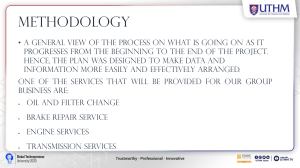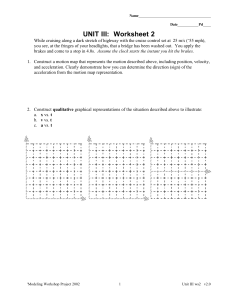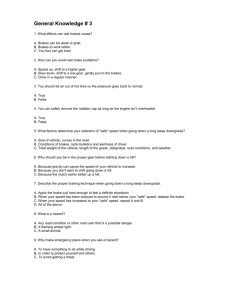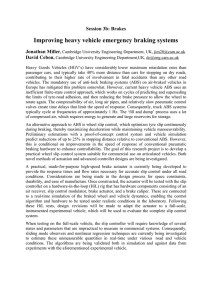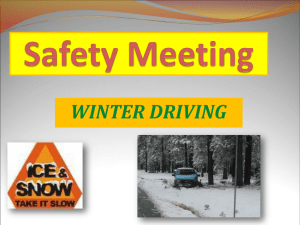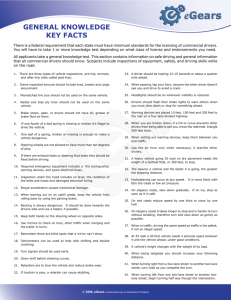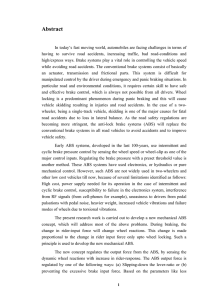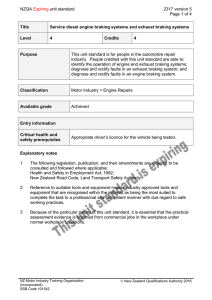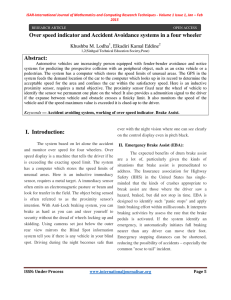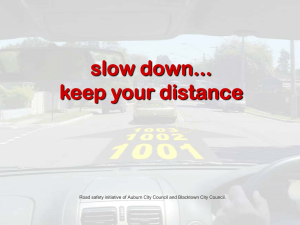winterdriving_v2005
advertisement
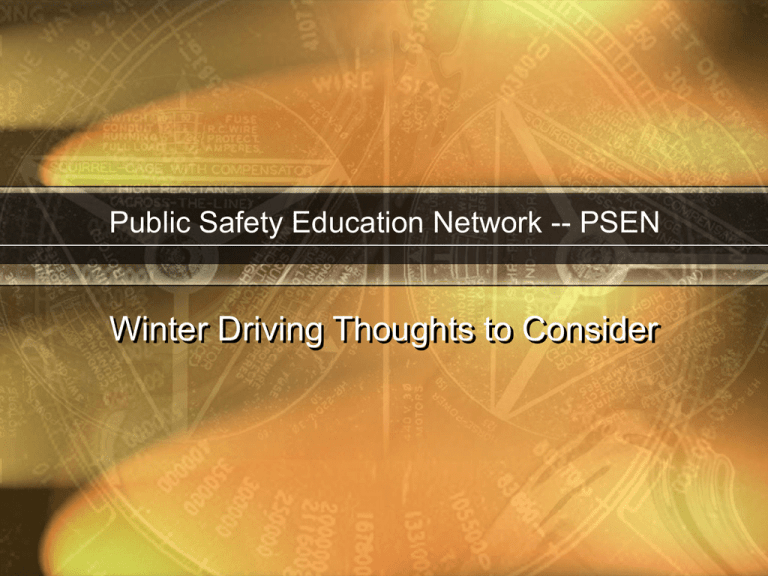
Public Safety Education Network -- PSEN Winter Driving Thoughts to Consider Driver Pre-planning • Weather forecast will prepare you. • Rain, Sleet, Snow, Ice • Daily temperature differences Tires / Tire Chains How Braking Changes • See + Think = Do • Braking and maintaining control challenges us • This distance can also be expressed as the time it takes to stop. When you see a problem ahead while driving, it will take you about 3/4 of a second of Perception Time (See-Think) and another 3/4 of a second of Reaction Time (Do). Braking Distance Changes • Not only do vehicles have limits, we, as drivers have limits • Use brakes cautiously. Abrupt braking can cause brake lockup, which causes you to lose steering control. • To make antilock brakes work correctly, or work at all, you should apply constant, firm pressure to the pedal Engine Retarder System • Some retarders can actually cause the drive wheels to lock up, stalling the engine, and in some cases result in loss of control or even cause a tractor/trailer to jackknife. • An engine retarder is more efficient at a higher engine r.p.m. and a lower vehicle speed Wet Roadway – Black Ice • To stop on icy roads, use extremely light pressure on the brake to control your vehicle’s speed • A slowly revolving wheel on an icy surface will be more effective than a locked wheel skidding on an icy surface • Make certain tire chains are properly sized for your tires and tightly mounted Steady and Slow • Keep your speed steady and slow • Speed limits are for perfect, dry conditions. On winter’s icy roadways, half the speed limit may be suicide Encourage Crew Input • Encourage others onboard to participate in the exchange of any information they think will help Intersection Safety Increase Following Distances Skidding • If you go into a skid, act quickly by taking your foot off the accelerator. • Keep your foot off the brake and steer in the direction the rear of the vehicle is skidding. In other words, if you want your vehicle to go right, turn right. If you want it to go left, turn left. Hold the steering wheel firmly, but don’t make large turns. Use a light touch to correct the swerve. • Follow your department guidelines and procedures • Incorporate manufacturer recommendations at all times • This seasonal review is refresher only. Public Safety Education Network -- PSEN Winter Driving Thoughts to Consider

